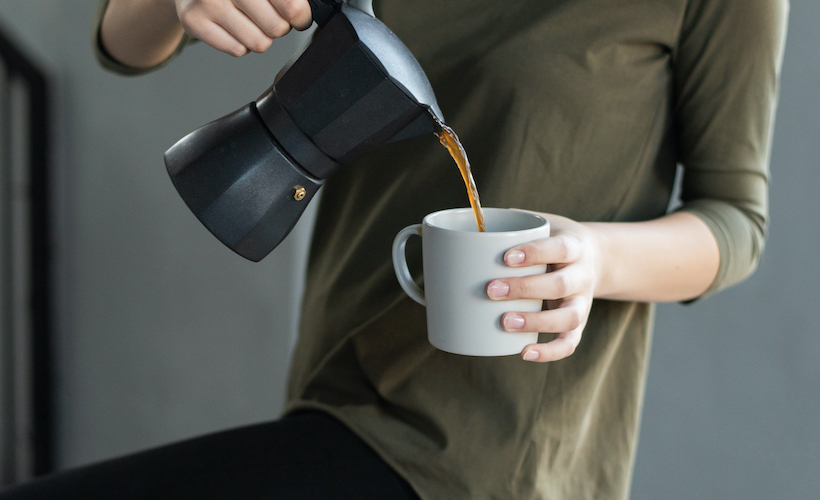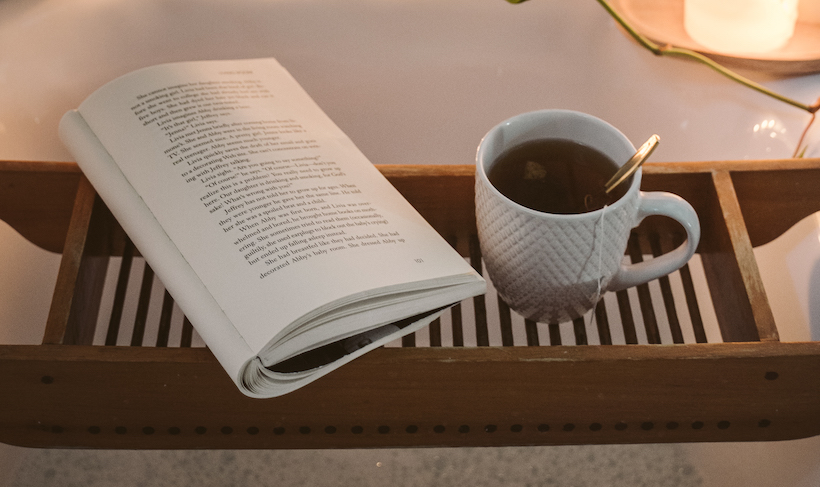Americans love their coffee, with over 50% of Americans drinking the beverage every day. (And I won't sugarcoat it – I'm obsessed with coffee.)
However, if you are a part of the 40% of the US adult population living with gastroesophageal reflux disease (GERD), you may find that drinking this popular beverage might trigger symptoms.
I don't have GERD, but I am prone to heartburn when I overeat. In this post, I'll expound more on the effects of coffee and tea on people with GERD and explore how you can drink tea and coffee beverages if you live with GI issues.
People often interchange acid reflux and GERD, but they are very different health conditions. In short, GERD is chronic, while acid reflux is acute. You can have an acid reflux attack even if you don't have GERD, but people with GERD are especially sensitive. Acid reflux is also known as acid indigestion, acid regurgitation, heartburn, or reflux.
These health conditions are quite prevalent in the US – 40% of adults and 0.14% and 0.22% of children under 12 and 17 report GERD symptoms. Statistics show that 60 million Americans suffer acid reflux at least once monthly(!), and over 15 million Americans report symptoms every day.
As with most conditions, acid reflux symptoms can range from mild to severe. With acid reflux, the lower esophageal sphincter (or LES), a circular muscle that connects the esophagus to your stomach, doesn't tighten properly, allowing stomach acid to back up into your throat.
The condition causes heartburn and sore throat, plus a bitter and sour taste in the mouth and back of the throat. For some, it also triggers pressure coupled with a burning feeling that extends to the chest.
GERD symptoms are more severe than those of acid reflux and can include:
I'm not a doctor – just a motivated researcher. Doctors recommend to manage acid reflux and GERD symptoms, try to avoid or minimize the following:
Lifestyle conditions don't always trigger GERD – sometimes, an underlying condition that makes you susceptible. Medical conditions such as congenital esophageal disorders, hiatal hernia, and (yes!) pregnancy can also trigger acid reflux and GERD. Unlike with acid reflux, you cannot relieve the symptoms of GERD with OTC medications, and you must seek medical treatment. If left unchecked, GERD may, in the long-term, possibly lead to esophageal or laryngeal cancers on top of dental conditions.

Although some health professionals advise that you can trigger GERD symptoms from coffee or tea as these beverages cause stomach acid to increase, the conclusions on whether these beverages are universal triggers are still inconclusive.
Scientists are looking into whether they can adjust coffee compounds to make them low acid and more palatable for reflux and GERD people. Studies found that coffee containing higher concentrations of a beneficial compound known as N-methylpyridinium – NMP – causes fewer stomach acid secretions, making it easier on your stomach. Additionally, chlorogenic acid, the main phenolic compound and antioxidant compound in coffee may be a trigger. Although it has positive health effects, possibly the key to coffee better for you lies in lower chlorogenic acid blends.
So – the claim that coffee can cause upper GI diseases such as GERD and acid reflux due to an increase in stomach acids is anecdotal. Many people do report coffee is a problem, but no high-quality study released data saying that coffee causes any issues.
Of course, this is a personal thing – if caffeine or coffee and tea of any type bother you, you should avoid them.
So, what should you do to avoid experiencing the discomfort of GERD from coffee or tea? Sorry you have to deal with this – let's look at some things you can try before you completely cut out your drink.
Adding milk and cream to coffee may also help it become more stomach-friendly – but only if you are not lactose intolerant.
Several milk proteins, such as α-casein, κ-casein, β-casein, α-lactalbumin, and β-lactoglobulin, bind to the chlorogenic acids in coffee. This process makes chlorogenic acid less easy to absorb and makes the coffee more palatable to GERD people. We don't yet know how it affects the beneficial effects of coffee, but it 's worth trying if you're having issues.
Contrary to popular belief, dark roast coffee varieties are easier on the stomach than light roasts as they have a higher content of NMP and lower content of chlorogenic acid.
These coffees offer the best chance of a beverage that doesn't cause acid reflux and GERD symptoms. Research is ongoing on how steam-treating raw coffee beans and fortifying coffee beans with NMP can help reduce the contents of the beverage's irritating compounds.
If you're having issues with coffee, you can try a darker roast )plus, of course, dairy if you can handle it!).
Cold-brew contains lower levels of all the complex compounds in coffee, which can mean that the chlorogenic acids and lactones that cause an increase in gastric acid will also be lower. However, it is essential to note that chlorogenic acid acts as an antioxidant, so cold brew coffee will contain less antioxidant benefits than hot-brewed coffee.
Interestingly, cold brew coffee often is much less bitter than iced coffee at the same temperature. Versus cold brew, traditionally brewed coffee tends to release more acids when exposed to higher temperatures – acids which sometimes intensify when cooled, as with regular iced coffee.
Before you give up the drink, try a cold brew variant.
Certain coffee varieties, especially beans from low-altitude territories in Brazil, Nicaragua, and Sumatra, are less acidic as they tend to develop fewer acids as they grow. Dry or natural processing also makes coffee low acid.
Although low acid coffees come in several roast options and flavors and tend to be smoother and milder than high-acidity coffee, they are not as bright in flavor (almost by definition).
Remember, acidity in coffee does not mean the pH level of the coffee. Instead, to us humans, it is a taste characteristic, with aroma, body, sweetness, bitterness, and aftertaste, so low acid coffees tend to taste flat or dull if used to other blends.
Here's a fun one for you – salt(!) might help reduce your coffee's perceived acidity. Some people swear by using salt in their coffee to mellow the acidity and minimize acid reflux.
But how does this work?
The tongue's surface has thousands of taste buds that identify the five basic tastes – sweet, salty, sour, bitter, and umami. When food hits your tongue, it begins a chemical reaction that transmits to the brain and enables it to identify tastes.
Research studies show that salt amplifies these other flavors. However, bitterness works differently from the other four taste reactions. Instead of the above normal response, the taste buds release calcium to send the 'bitter' signal to the brain. Salt – for reasons scientists are still looking into – overrides this reaction masking the bitter coffee sensation. And funny enough, bitterness is part of the trigger of releasing your stomach acid with coffee.

When drinking tea – which often contains less caffeine than coffee – it is still important to carefully pick and choose teas that are less likely to trigger acid reflux and GERD. Avoid citrus, peppermint, and spearmint teas, which contain flavors and ingredients which may exacerbate symptoms.
Just like with coffee, dairy may also tame the acidity in tea and could be an excellent addition to attempt to avoid the symptoms of reflux and GERD. (However, it is not clear whether honey triggers these symptoms.)
Some other ideas you can try:
There are no high-quality studies that say you shouldn't drink coffee on an empty stomach, but anecdotally many people have issues. If that describes you, try to hold off on drinking coffee or tea until you have eaten something that day.
Additionally, you don't need to drink coffee immediately in the morning – your body naturally releases cortisol (the stress hormone) in the early morning. You can wait to drink coffee until around 10 AM - 12 noon for most people to get the biggest energy boost.
While the jury is still out on whether coffee and tea can cause conditions that give you GERD, there's plenty of evidence they might trigger symptoms.
Unfortunately, this is often going to boil down to individual triggers. While coffee won't give you GERD, it might trigger symptoms if you're already susceptible.
I'm personally prone to heartburn when I overeat. Dairy helps me with the coffee, and it's enough to let me continue to enjoy coffee's benefits. Hopefully, you can continue to enjoy coffee and tea too – let me know what worked for you in the comments.